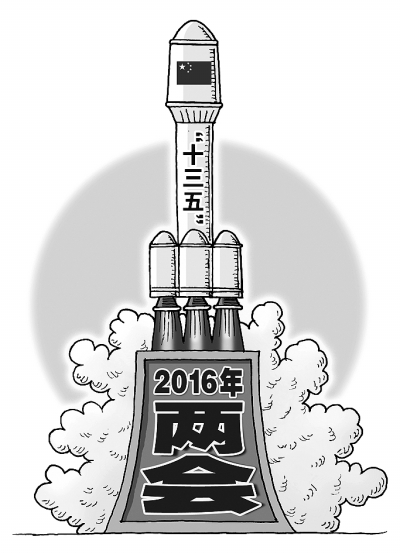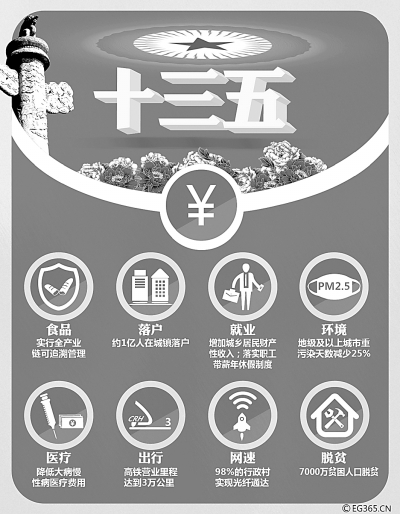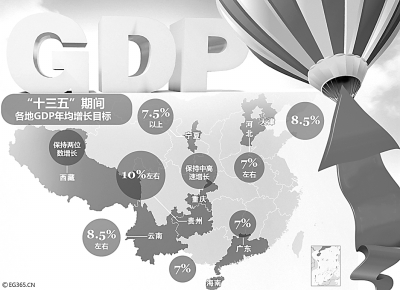


Core tips
■ The new economy is intended to comprehensively improve the internal quality of China’s economy and promote the sustainability of development with "new".
■ New industries, new formats, new models, new products, new services and other new kinetic energy are constantly accumulating, and new economic forms are ready to emerge.
■ The generation of new kinetic energy and the development of new economy need to further break through the existing institutional mechanisms.
"At present, China’s development is in such a critical period that we must cultivate and expand new kinetic energy and accelerate the development of a new economy." This year, the word "new economy" was written in the government work report for the first time, which became a new highlight of the report. What is the domestic and international background of emphasizing the new economy? What exactly does the new economy contain? How to promote the vigorous growth of new economy?
1. The "new economy" broke ground.
Rape flower, plum flower, peach flower, pear flower and citrus flower … … With the arrival of spring, the flowers in the countryside attract people to stop; Leisure farms, characteristic folk customs, self-driving camping, outdoor sports … … The new era of mass tourism is activating new consumption hotspots.
The latest data shows that the service consumption of cultural tourism in China is not decreasing. During the Spring Festival, the national tourism revenue reached 144.8 billion yuan, an increase of 14.6%. In February, the box office of the national film market was nearly 7 billion yuan, surpassing the North American market and ranking first in the world.
Today, China’s economy is facing a painful period of transformation. It is not in line with the economic law to let the traditional kinetic energy continue to maintain the high growth in the past.
Economic development is bound to have the process of iterative replacement of old and new kinetic energy. When the traditional kinetic energy becomes weak from strong, it needs the sudden emergence of new kinetic energy and the transformation of traditional kinetic energy to form a new "double engine" in order to promote sustained economic growth and leap to a new level.
The report "Review of World Economy in 2015 and Prospects for 2016" released by the National Bureau of Statistics recently pointed out that in 2016, the world economy will still be in the recovery period after the international financial crisis, the effectiveness of policies and measures will decline, and new growth momentum has not yet been established. It will still maintain the "three lows and one high" trend of "low interest rate, low inflation, low growth and high debt", and the recovery will remain weak, and weak demand will restrict China’s economy.
How can China’s economy set sail in the first year of the decisive stage of building a well-off society in an all-round way and the crucial year of promoting structural reform on the supply side?
The unfavorable factors and uncertain factors in the operation of the world economy are increasing, and how can China’s economy climb over the hill in the critical period of the continuous transformation of domestic new and old development kinetic energy?
"The development of China has always been advancing in response to challenges, and there is no hurdle." Premier Li Keqiang’s answer is very firm.
As long as we are tough enough to make the new economy form a new "S-shaped curve", it will give impetus to the new kinetic energy of China’s economy.
On March 16th, Premier Li Keqiang, when meeting with Chinese and foreign journalists and answering questions, said that the new economy has a wide coverage and rich connotations. It involves the primary, secondary and tertiary industries, not only the emerging service industries and new formats such as the Internet, the Internet of Things, cloud computing and e-commerce, but also the intelligent manufacturing and mass customized production in the industry. It also involves family farms and stock cooperatives that are conducive to promoting moderate scale operations in the primary industry, and rural areas. The new economy referred to in the government work report has gone beyond the original scope of this concept, but has richer connotation and broader scope.
Cui Jianhua, deputy secretary and vice president of the Party Committee of Peking University University of Economics, believes that the new economy focuses on "newness" and all-round "newness". In recent years, there are many references to the "newness" of China’s economy, such as new structure, new model, new industry, new format, new products, etc., which are put forward from different angles and different fields, and each has its own reasons and is not contradictory. The new economy should be a comprehensive category and corresponding unremitting practice, including all kinds of "newness", comprehensively improving the internal quality of China’s economy and promoting the sustainability of development with "newness".
2. Do "subtraction", "addition" and "multiplication"
"The total amount of development and structural problems coexist, and structural problems are more prominent." This is a scientific judgment of China’s current economic situation. Therefore, we must focus on strengthening supply-side structural reform, accelerate the cultivation of new development momentum, and transform and upgrade traditional comparative advantages.
Do subtraction and addition, reduce ineffective and low-end supply, expand effective and high-end supply, and increase the supply of public goods and services; At the same time, give play to the multiplier effect of mass entrepreneurship, innovation and "internet plus". Cui Jianhua pointed out that the new economy needs the support of "new structure". De-capacity, de-stocking and developing new industries are all structural adjustments of China’s economy. On the one hand, it is the adjustment and upgrading of the original industries, and structural adjustment does not blindly exclude traditional industries; On the other hand, it is the great development of new and frontier industries, which promote the transformation of industrial structure in parallel.
Since the beginning of this year, China’s structural adjustment has made positive progress, and transformation and upgrading are on the way. As the largest industry, the service industry continues to maintain a good momentum of development.
With the implementation of the innovation-driven development strategy and the introduction of a series of policies and measures to encourage mass entrepreneurship and innovation, new industries, new formats, new models, new products and new services have been accumulating.
In January, the number of domestic invention patents accepted increased by 35.7% year-on-year, and the number of domestic invention patents granted increased by 57%.
"internet plus" related industries are in the ascendant. 1— In February, the national online retail sales of goods and services increased by 27.2% year-on-year, and online shopping led to the rapid growth of express delivery business. Information consumption has doubled, and mobile Internet access traffic increased by 120.9% in January.
New products with high added value and high technology content are growing rapidly. 1— In February, the output of new energy vehicles increased by 75.9% year-on-year, smart TV increased by 28.5%, urban rail vehicles increased by 28.0%, optoelectronic devices increased by 22.6%, and special equipment for environmental pollution prevention increased by 21.8%.
New services and new models are constantly emerging. Driven by technological innovation, the penetration of mobile Internet and traditional industries is accelerating, and new service models are constantly being born. Various regions provide personalized and customized public products and services to enterprises by establishing business incubators, business parks and service centers. Innovative service platforms such as Zhongchuang, Crowdsourcing, Crowdfunding and Crowdfunding have achieved efficient integration of various resources. New service modes, such as online car rental, online medical care and distance education, have greatly released the consumption potential.
The supply-side structural reform effect has emerged. The output of some "overcapacity" industries has declined. 1-mdash this year; In February, the output of cement decreased by 8.2%, crude steel by 5.7% and 10 kinds of non-ferrous metals by 4.3%. The price decline of related products narrowed.
"The kinetic energy conversion is gradually effective, and the new economic form is ready." Ning Ji Zhe, director of the National Bureau of Statistics, pointed out.
3. The new economy needs system innovation
"Although the central government is promoting decentralization, in many areas, the approval process is still too long. To turn new technologies into new kinetic energy and truly benefit the people, we must grasp the big and let go of the small. " Chen Hesheng, an academician of China Academy of Sciences, pointed out.
Xu Zhengzhong, a professor at the National School of Administration, believes that the current global economy has entered the 3.0 stage of free combination of everyone supported by "cloud computing, Internet of Things, big data and intelligence". The era of "great wisdom" has given birth to a new mode of economic development, which is and will completely change the way of knowledge acquisition, inheritance, accumulation and creation, and promote profound changes in lifestyle, working methods, organizational methods and social forms, and the form of public governance has also changed accordingly.
As an important part of the new economy, "sharing economy" also appeared for the first time in the government work report. Sharing economy, also known as peer-to-peer economy, collaborative economy and collaborative consumption, is a socio-economic ecosystem based on the sharing of human and material data. In the era of "internet plus", sharing economy has become a new trend, and industry changes have come.
In recent years, China’s sharing economy has developed rapidly, which is profoundly changing the economic form and lifestyle. Online creative design, marketing planning, catering and accommodation, logistics express, capital lending, and transportation … … The sharing economy has penetrated into all aspects of society. However, the data show that the market size of China’s sharing economy is small and the market development is not perfect. The important constraint is that the supervision of sharing economy still adheres to the concept of managing traditional industries.
"It is necessary to accelerate the growth of new technologies, new industries and new formats, promote the sharing of economic development through institutional and institutional innovation, build a sharing platform, expand emerging industrial clusters such as high-tech industries and modern service industries, and create a new engine with strong power." The clear expression of the government work report makes people see the hope of future development. "The government’s support for sharing economic development is more distinct, which will improve the efficiency of resource utilization and let more people participate and get rich." Fu Jun, vice president of China Civil Chamber of Commerce, said.
New technology, new industries and new economy run through the whole 13 th Five-Year Plan. The Outline identifies a number of major scientific and technological innovation projects and projects in 2030; Focus on supporting the development and growth of new-generation information technology, new energy vehicles and other related industries, vigorously promote innovation and industrialization in emerging frontier areas such as intelligent transportation, virtual reality and interactive film and television, and form a number of new growth points; Eight major informatization projects were identified; Implement the intelligent manufacturing project, strengthen the construction of industrial Internet facilities, technical verification and demonstration, and promote the "Made in China+Internet" to make a substantial breakthrough.
Xu Shaoshi, director of the National Development and Reform Commission, pointed out a few days ago that "China has put forward an innovation-driven development strategy, which has a historic intersection with worldwide innovation and provides a window of opportunity. Innovation and entrepreneurship will become a strong driving force for China’s economic growth in the future."
information
Postal savings bank launches consumer industry alliance
China Postal Savings Bank and China Post Consumer Finance Co., Ltd. recently established a consumer industry alliance of "You have a home by post" in Beijing, and released the first consumer financial product for "families with children" — — The "second child loan" is open to families with children all over the country, and only charges 0.75% handling fee. It is reported that the "You have a home by post" consumer industry alliance is a new model of integration of production and operation, which provides one-stop comprehensive consumer financial services for every small family through the entrance of "China Post Wallet" APP. (Yang Liang)
Jiang Tai Global Rescue Alliance was established.
Jiang Tai Insurance Brokers Co., Ltd. recently initiated the establishment of Jiang Tai Global Rescue Alliance in Beijing, aiming at providing China citizens with seamless global 24-hour rescue services, including travel risk prevention and early warning, security information services, medical assistance services and related travel assistance services. (temperature source)
EZZY, an intelligent sharing platform for automobiles, was launched in Beijing.
The "EZZY" car intelligent sharing platform APP created by Dameng Technology has been launched recently. The core of this product is a smart car control and sharing system. In use, users do not need to pay a deposit or go to the store to go through the formalities. After downloading the APP, the mobile phone becomes a master key, and the car can be locked by searching for nearby vehicles. Users can leave by themselves after use, and the central control system can automatically lock the doors and close the windows. (Qiu Wei)
(Reporter zhang yi)